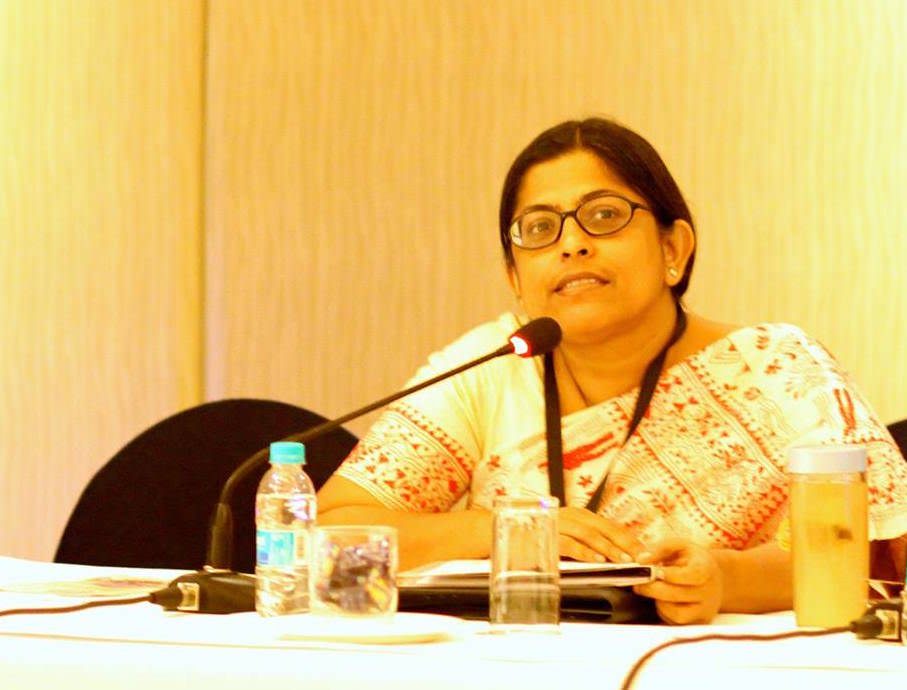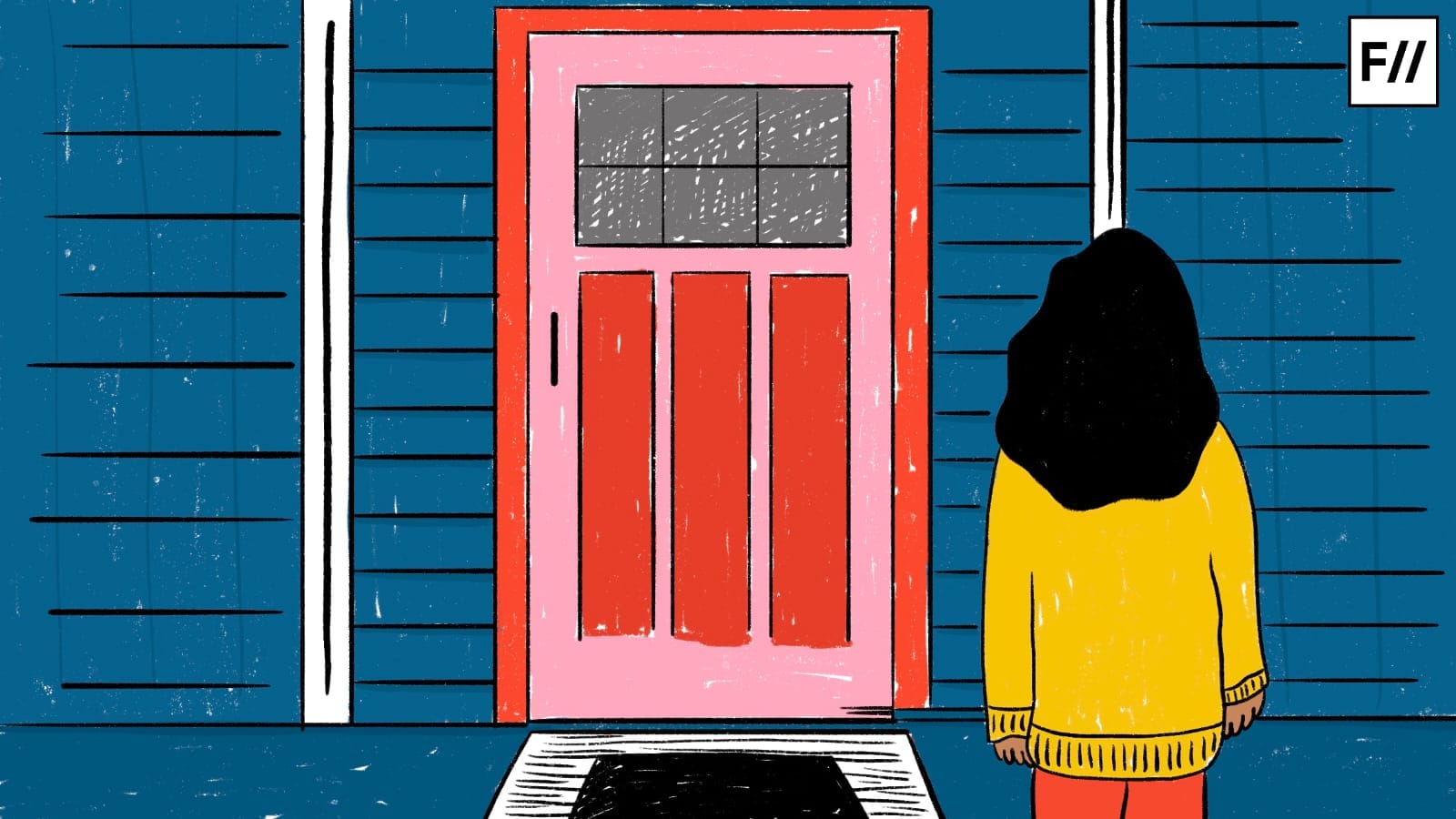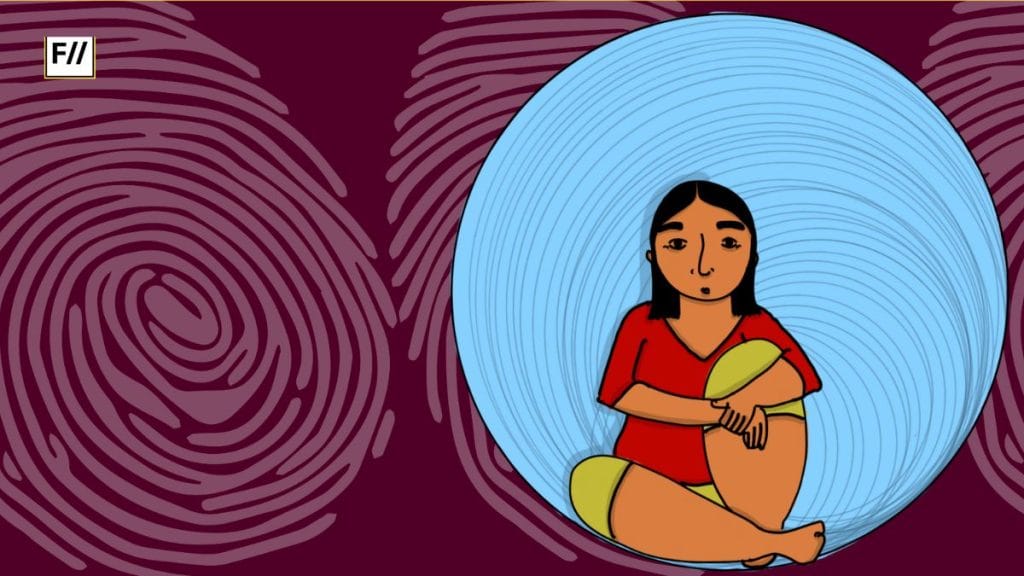Shampa Sengupta is an activist working on gender & disability issues. She is the founder of the advocacy group Sruti Disability Rights Centre and is an Executive Committee Member of National Platform for Rights of the Disabled. She wears several hats and her current focus is on effecting meaningful policy changes for women with disabilities. In this interview, we speak with her about her work, what she sees as challenges and opportunities, and learn more about her path.
Shruti: Could you give us an introduction about you and your work, what got you interested and brought you to your career?
Shampa: I started working on disability issues since my college days. I did not have a direct personal connection but I came to this field because I wanted to work in it. Initially I started volunteering, then it became a part-time job, then full time and then it became my whole life. Disability work is not a “career” to me – I prefer not to earn from this work. I also prefer not to fall into exclusive categories such as “professional/care-giver/disabled person”. I see these roles are interchangeable – this is true for me as well as several other people.
Shruti: What do you see as the biggest policy barriers for the rights of people with disabilities?
Shampa: The laws and policies of our country are usually made by government officials who do not have the knowledge of what is happening on the ground. On the other hand, when a policy is being adopted by our country, information about it does not reach to the primary stakeholders. For example, how many people within the sector know that India adopted National Policy for Persons with Disabilities in 2006?
This is the first ever official document of our country which mentioned women with disabilities as a specific category whose needs are important to be addressed. What change can it make at the ground level when we do not remember our own laws? The government has never been pro-active in implementing any disability legislation – even if 50% of the clauses of the existing laws and policies were implemented, the current state of rights of people with disabilities would be much better.
Shruti: Would you see mental health issues as a disability or would you categorise it differently? Do you see physical disability issues being confused with mental health issues? is there a lack of understanding or awareness?
Shampa: Mental health is both a disability issue as well as a health issue. The health part should be looked after from a medical perspective and the disabilities arising from mental illnesses should be treated from disability angle.
In general, the lack of awareness in both physical disability issues and mental health issues are evident. People confuse these issues – they think a wheel-chair user cannot “understand” or hold a conversation, when in reality a country like Ecuador elected a wheelchair-user as its President.
There are different kinds of problems for people having mental health issues – since their illness is not visible, they are usually not offered “reasonable accommodation”. They are left behind from education/employment and all kinds of areas where they need support.
We need to understand that people with physical or intellectual disabilities also go through mental health problems like people without any physical or intellectual disabilities. We do not have counselling centres geared towards people who acquire disabilities at a later stage in their life. In my work, we have received letters from a victim of road accident, who lost his legs, saying he would commit suicide as he is unable to take the trauma. Not only a limb, he lost his job and he felt unable to accept his dependence to his family. Counselling itself is an expensive proposition is our country and he needed an experienced counsellor willing to go to his home to counsel. Where is there any such provision in our Health system? If services are not in place, then despite how progressive Disability Law or Mental Health Laws are there, this will not help people at ground level.
Shruti: A lot of people are unable to see people with disabilities as people with sexual needs and desires – could you talk more about this ‘invisible issue’, as you have so aptly named it?
Shampa: When you say “a lot of people” I think you are talking about the mainstream society which is very ableist by nature. We in the disability sector talk about sexuality, sexual needs and desires quite often. We know that these issues are part and parcel of our lives. For example, I do not think mainstream schools ever think of teaching young adults how to handle menstruation or how to shave when their students reach puberty – but these are part and parcel of special school systems.
This is so that some kind of sexuality education, (though there’s need to work on it more) becomes integrated in lives of adolescents with disabilities. Yes, most of the sexuality education comes from the perspective of protection for people with disabilities, but I do not think that the issue is invisible within the sector.
Also Read: Educating Educators In The Field Of Deafblindness And Sexuality
Shruti: In this interview in 2015, you spoke about the difficulty of bringing gender into disability discussions – do you see any progress since this discussion?
Shampa: Yes, the progress had been slow but gender is definitely much more talked about within disability discourses in India now. When I started working on the same around the year 2000, I have heard people saying “Don’t men with disabilities face barriers? Why are you speaking about women specifically?” But we worked on it for many long years. Now that we have the UN Convention on the Rights of Persons with Disabilities, including provisions for women in the disability sector is much more mainstream. Also, through our continuous work, we have brought about changes in Sexual Assault laws with the Criminal Procedure Court having specific clauses on sexual abuse of women with disabilities. Our newly passed Rights of Persons with Disabilities Act also has various provisions on women with disabilities. So we have seen changes in laws. But we need to work on implementation and its effectiveness and we are determined to do same.
Also Read: The Rights Of Persons With Disabilites Act Was Historical, But Its Implementation Ignored All Public Recommendations by Shampa Sengupta
Shruti: Finally, could you tell us about your work as the Executive Committee Member, National Platform for Rights of the Disabled? Does this involve focusing on making public spaces more accessible? What do you see as possible given the political and social realities in India?
National Platform for Rights of the Disabled is a membership based group which works with grassroots people. So our aim is to bring disabled people from all corners of India under one big umbrella so that we can fight together to bring in changes. We have affiliates in 14 states of India and have been active in many policy level changes in past few years. One thing I am happy about in present times is that some political parties have started taking disability as a serious issue. Civil society has very limited role – they can work as pressure groups but it is the political parties that can bring in major changes. It is important to see disability as a political issue and not a charity issue. Through my work with NPRD, I try to make people aware of this.
You can follow Shampa’s work at Sruti Disability Rights Centre and National Platform For Rights Of The Disabled as well on Facebook and Twitter.
About the author(s)
Feminist and Indian. Interests include gender, education, mental health and wellness. India/US.





Very informative and relevant article for all of us. We need to be aware of the rights we have for the disabled people.